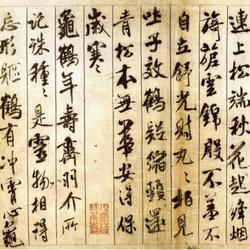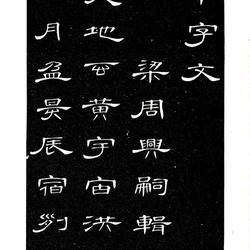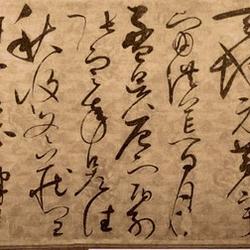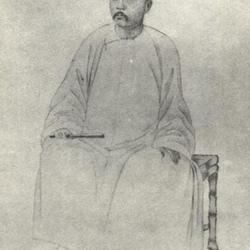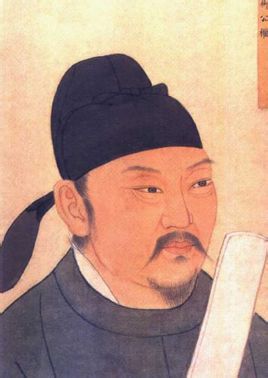
Liu Gongquan (778-865), courtesy name Chengxuan, Han nationality, was born in Jingzhao Huayuan (now Yaozhou District, Tongchuan City, Shaanxi Province). The younger brother of Liu Gongchuo, Minister of the Ministry of War, he was a calligrapher and poet in the Tang Dynasty. He served in the seven dynasties of Xian, Mu, Jing, Wen, Wu, Xuan and Yi. He was promoted to Prince Shaoshi, and was granted the title of Duke of Hedong County. He became an official as Prince Taibao, and was known as "Liu Shaoshi" in his later life. He died in the sixth year of Xiantong (865) at the age of eighty-eight and was given to the prince and grand master.
Liu Gongquan's calligraphy is famous for his regular script. He is as famous as Yan Zhenqing and is known as "Yan Liu". He is also known as the "Four Masters of Regular Script" together with Ouyang Xun, Yan Zhenqing and Zhao Mengfu. He first learned calligraphy from Wang Xizhi. Later, he looked at the calligraphy of famous calligraphers of the Tang Dynasty and thought that the calligraphy of Yan Zhenqing and Ouyang Xun was the best. "Physical body", famous for its strong bones, and later generations had the reputation of "Yan Jin Liu Gu". Liu Gongquan is also a poet. Five of his poems are preserved in "The Complete Poems of the Tang Dynasty" and one poem is preserved in "The Complete Poems of the Tang Dynasty".
Liu Gongquan's "Jiuyi Mountain Ode" in small regular script
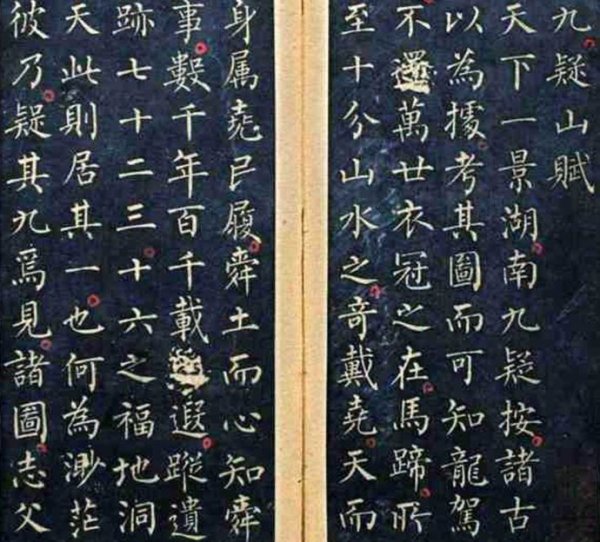
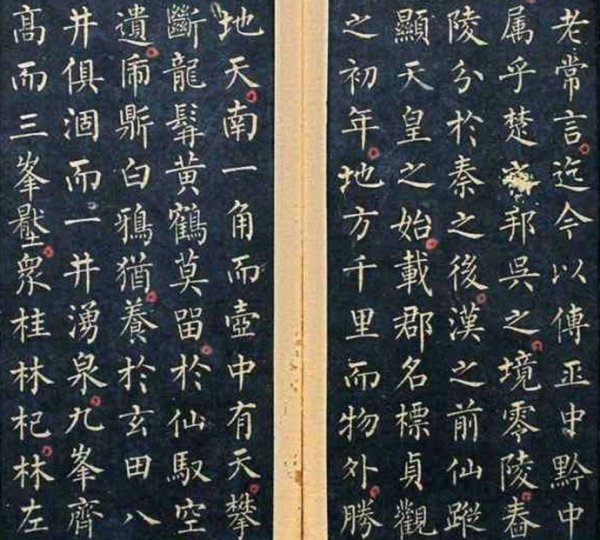
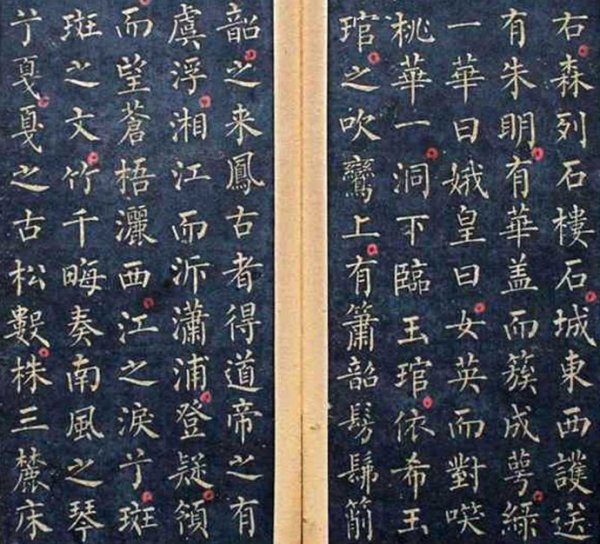
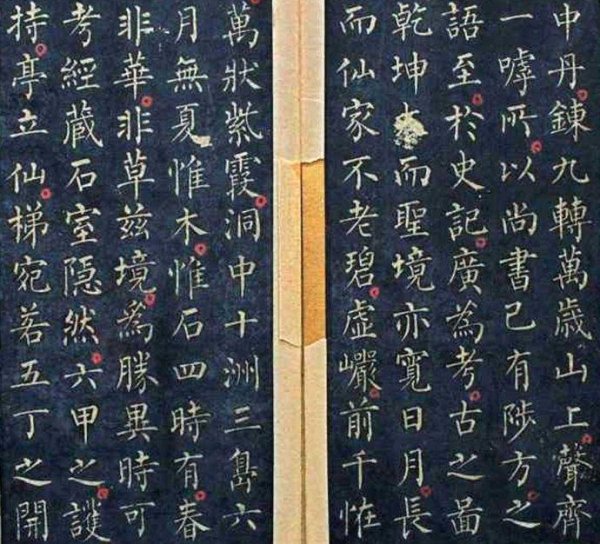
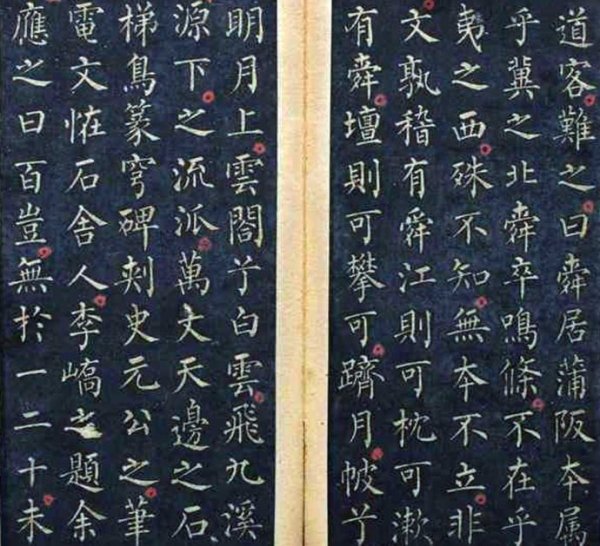
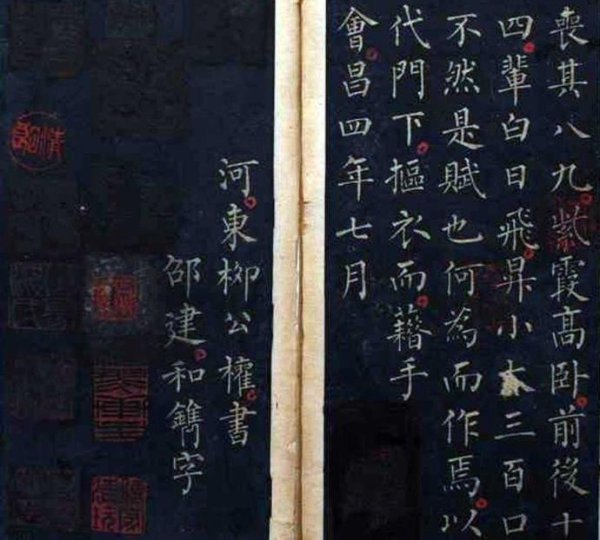
The original text of "Jiuyi Mountain Ode":
One scene in the world, nine doubts in Hunan. Based on the ancient evidence and the examination of the pictures, we can see that the dragon will not return, the clothes and crowns of the world will be there, and the horse's hooves will hit it, which is a very strange landscape. Dai Yao was born in heaven and belonged to the people of Yao. He walked in the land of Shun and knew the affairs of Shun in his heart. Among the relics that have been traced for thousands of years and hundreds of thousands of years, this is one of the seventy-two and thirty-six blessed places and caves. What a slim thing. Is he suspicious of Jiuyan? See all pictures. The old sayings have been passed down to this day. Wuzhong and Qianzhong belong to the state of Chu and the territory of Wu; Lingling and Chongling belong to the area after Qin and before Han. The fairy traces mark the beginning of the emperor's reign, and the name of the county marks the early years of Zhenguan. The place is thousands of miles away, but there are beautiful places outside. In the southern corner of the sky, there is sky in the pot. The dragon's beard is cut off, the yellow crane is not left behind by the immortals, the tiger cauldron is left empty, and the white crows are still raised in Xuantian. Eight wells are dry, but one well is full of spring. Nine peaks are all high, and three peaks are overwhelming. Guilin, Qilin, forest columns on the left and right, stone towers and stone cities, escorting from east to west. There are Zhu Ming and a canopy, and they are clustered into a calyx green flower, which is called Ehuang and Nvying, and there is a hole of peach blossoms facing each other. Next to the Jade Guan, I hope the Luan is blown by the Jade Guan, and there is the Xiao Shao above, just like the phoenix coming from the Xiao Shao. The ancients learned the way, and when the emperor was in danger, he floated on the Xiangjiang River and traced back to Xiaopu. Climbing up the mountain, you can see the sky and sky. You can see the tears of the Xijiang River, thousands of acres of asparagus trees, the harp of the south wind, and the roar of several ancient pines. In the bed at Sanlu, there are nine rounds of elixir refining, and on the Long Live Mountain, there are people shouting in unison. Therefore, the book of ministers already has the language of Zhifang, and as for the historical records, it is widely used as an archaeological map. The universe is big and the holy realm is wide, the sun and the moon are long but the immortals are immortal. In front of the Bixu Rock, there are thousands of strange things, and in the Zixia Cave, there are ten continents and three islands. There is no summer in June, there are only trees and stones, there is spring in all seasons, neither flowers nor grass. This situation is a victory, and it can be tested at different times. The stone room where the sutras are stored is protected by Liujia, and the fairy ladder stands like a five-foot-long ladder opening the way. The guest said, "Shun lived in Puban, which belongs to the north of Hebei. Shun's death did not matter to the west of Yi." As everyone knows, if there is no foundation and no foundation, it is nothing but literature. If there is the Shun River, you can take a pillow or wash your head; if there is the Shun Temple, you can climb or climb into it; the moon is shining brightly, and the white clouds are flying in the cloud pavilion. The school at the source of Jiuxi, the stone staircase stretching to the horizon. The dome stele in bird seal script is written by Yuan Gong, the governor, and the strange stone with telegraph text is inscribed by Li Qiao. Yu Yingzhi said: "How can one or two of a hundred be lost? Eighty-nine of ten cannot be lost." Purple clouds lie high, fourteen generations before and after them, flying up in the daytime, three hundred people, small and big. Otherwise, if it is a gift, why should it be done? He used his hand to pick out his clothes on behalf of his subordinates. In July of the fourth year of Huichang, Liu Gongquan's letter from Hedong was engraved by Shao Jianhe

